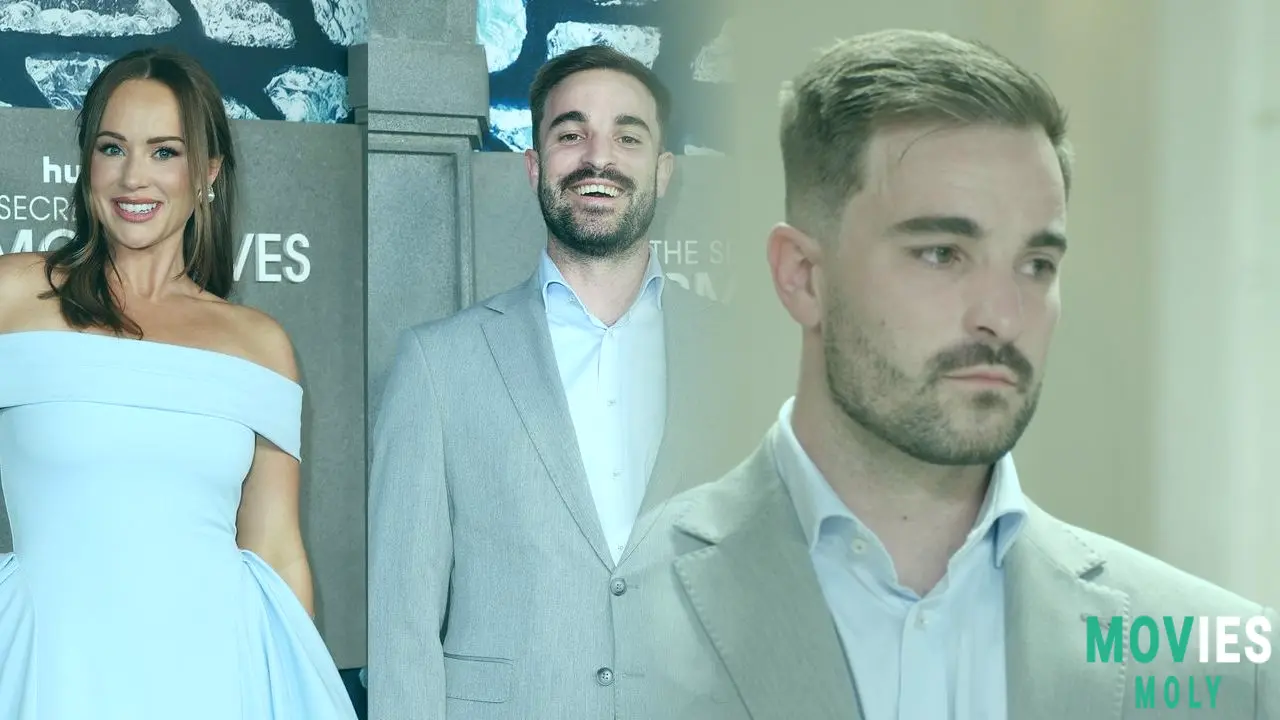As a fan of The Secret Lives of Mormon Wives, I believed I understood Whitney and Conner Leavitt's challenges after watching their marriage play out on film for two seasons. With tension building throughout the emotional reunion and host Nick Viall constantly grilling Whitney about accountability, it appeared to be just another round of franchise drama - until one moment altered everything. When Conner Leavitt courageously revealed that he had been sexually abused as a child, the debate switched from reality TV scandals to painful human truths. For the first time, we witnessed the underlying trauma that was driving their public battles with addiction, infidelity, and emotional disconnection.
Watching Nick grill Whitney about her friend Demi Engemann's accountability as Conner sat silently nearby during the group parts made me feel the familiar itch of producers creating tension where vulnerability belonged. But then came that raw, unaired clip from season one: Conner sobbing as he realized the link between his childhood trauma and the coping techniques that almost ruined their marriage. True to Mary Kassel's analytical sensibilities, I saw that this revelation did more than merely explain Conner's travels; it completely changed Whitney's defenses of her marriage. The reunion shifted from being about petty cast issues to illustrating how tragedy reverberates across generations.
The tense atmosphere of the reunion set Whitney on edge.Nick Viall's questioning appeared to target Leavitt unfairly.
The tension was palpable from the start of the reunion. Nick Viall focused on Whitney's relationship with absent castmate Demi Engemann, transforming what should have been a friendly conversation into a courtroom-style interrogation regarding accountability. When Nick asked Whitney if she thought Taylor Frankie Paul was "better at taking accountability" than Demi, I felt my guard go up; the suggested comparison seemed aimed to provoke rather than illuminate. As Whitney nervously responded "yes and no," Viall quickly switched to place her own accountability under the spotlight:
"I'm not asking you to judge it. I'm wondering what you think... "Equally good or equally bad?" The forced absolutes felt especially odd in a show about Mormonism's subtle cultural pressures. Whitney stiffened significantly as Nick questioned cast members about her perceived capacity to admit faults, with only Miranda McWhorter and Dakota Mortensen agreeing with her. Her annoyance overflowed: "I feel like I'm being called out constantly." And, for once, I agreed with her completely. Rather than delving into the structural factors causing their disputes, the questions became personal in ways that neglected the show's fundamental theme: how these women manage faith and modern living.
Conner’s Heartbreaking Childhood Trauma Revelation

The Unaired Clip Changed The Conversation Completely
Just when the reunion appeared to be rehashing surface-level disagreements, the producers played an explosive unaired clip from season one, removing all illusion of petty drama. Conner sat there, shot shortly before their family's season one escape to Hawaii, revealing the raw nerve beneath his past mistakes: "I needed to get treatment, so we started going to therapy... and I knew why - something I've only revealed with Whitney, my therapist, and my family. I was raped when I was a tiny boy."
The entire mood changed instantly. This wasn't reality TV evasion; it was a man analyzing the intricate trauma circuits that underpin his much-maligned behavior. Conner said, "When I was fully honest with that emotion and recollection, everything made sense, and I got the confirmation I needed... I regret doing it to you [Whitney]." Back in real life, Conner approached his castmates with prepared words: "That was a really tough part of my past, and I've worked hard to heal from it... Those experiences affected me and taught me very damaging habits, but they do not define who I am today. In that instant, The Secret Lives of Mormon Wives shifted from guilty pleasure to true healing space.
The Leavitts' Long Journey to Healing

Tumultuous Scandals Take On New Meaning.
Reflecting on Whitney and Conner's journey in light of this new background changes the meaning of every previous headline. Remember Whitney's viral backlash over a happy TikTok dance with baby Liam in the NICU? Or when astonished fans found Conner's secret Tinder profile in 2022? We evaluated via cheap frames of "clout-chasing" and "cheating," ignoring the underlying agony that underpinned these events. Even Whitney's tearful season one explanation - "People felt like I was using my child's sickness for attention" - now appears tragically naive in light of this revelation.
In many ways, their relationship has functioned as a public trauma rehabilitation laboratory. From their 2010 near-meeting as missionary assignments before properly connecting in 2015, to Conner overcoming pornography addiction just as they began their family with daughter Sedona (now 4), their timeline reflects someone attempting to navigate intimacy after violation. Last year, he addressed sexuality allegations on Off the Vine, questioning whether he needed to release a sex tape. "That rumor arose because we discussed Conner's complicated relationship with sexuality." With three children, Liam (2) and baby Billy Gene, anchoring their universe, their recovery journey is ongoing and requires more subtlety than reality TV often gives.
Why This Revelation is Important for Reality TV

Bravery Beyond the Confessional Booth
When Taylor Frankie Paul immediately jumped up to embrace Conner following the revelation, unprompted by producers, and I saw the kind of genuine human response that reality series regularly clip out for spectacle. Taylor understood more than most; her own vulnerability about divorce provided Conner the "courage and strength" to share. Even Mikayla Matthews agreed that Conner, in the midst of a disagreement with his wife, reached out to help her process her own abuse. These simple moments of unity are incomparably more important than orchestrated "gotcha" questions.
It pushes us to admit how casually we absorb trauma for entertainment. When Conner said, "Your story doesn't end with what happened to you," he provided something unique in reality television: transformational messaging. The Leavitts' story shows why surface-level judgment constantly fails: intricacies rooted in sexual trauma require more attention than Nick Viall's accountability tribunals provide. Whitney asserted emphatically while supporting Demi: "Jessi has talked shit about me... which I would actually consider bullying." It turns out that the most profound "secret" isn't infidelity or social upheaval, but how compassion is overlooked in stories about complicated lives.
The Secret Lives of Mormon Wives reunion is currently available on Hulu.




